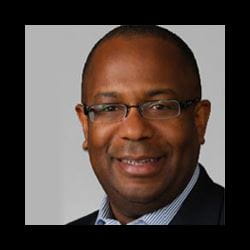Meet Steven Waller

Steven Waller
Partner/Principal - Transaction Advisory Services at EY
WHAT WERE SOME OF THE CHALLENGES YOU WERE FACING IN YOUR WORK AT THAT LED YOU TO THE EXECUTIVE PROGRAM IN CORPORATE STRATEGY AT BOOTH?
Waller: As consultants, we are always challenged to help our clients solve their most complex business issues through a combination of industry insight, analytical rigor, and problem-solving skills. To do that well, you have to intellectually stretch yourself.
The challenge that led me to the Executive Program in Corporate Strategy at Booth was my desire to continually bring fresh thinking and new approaches to my clients. As it relates to mergers and acquisitions, the fundamental challenge my clients face is how to best optimize the strategic objectives of a deal against the execution the realities of getting it done.
When my clients and I navigate through a merger or acquisition, I am focused on helping them realize the value of the transaction, while also managing all of the complex change-management issues—customer, operational, human capital, organizational—that inevitably arise during transactions.
HOW DO YOU THINK THE PROGRAM PREPARED YOU TO BETTER MEET THOSE CHALLENGES IN THE FUTURE?
Waller: The program taught me that the best approach to problem-solving is to start first with principles: What is the essential issue or question being addressed? What, if any, hypotheses do I have to explain or understand the issues? And what analyses and data do I need to test those hypotheses?
OF ALL THE SKILLS YOU LEARNED IN THE PROGRAM, WHICH HAVE BEEN MOST USEFUL TO YOU AND WHY?
Waller: The idea I find myself coming back to is that it’s very easy to get intellectually comfortable. The best thinkers and problem solvers are the ones who are constantly challenging their own biases and preconceptions.
WHAT SURPRISED YOU ABOUT THE EXECUTIVE PROGRAM IN CORPORATE STRATEGY?
Waller: There were a number of things that surprised me about the program, including the diverse backgrounds of my fellow classmates and professors, the amount of content we covered during the week, and the vigorousness of the debates.
ONE OF THE CORE PIECES OF THE CURRICULUM IS STUDYING GAME THEORY REASONING FOR USE IN STRATEGIC DECISION-MAKING. WHAT DID YOU TAKE AWAY FROM THAT PART OF THE PROGRAM, AND HOW HAS IT BEEN USEFUL TO YOU?
Waller: As an undergraduate mathematics major, I have relied on game theory reasoning throughout my career. The importance of applying game theory is that by combining theory with empiricism to establish a range of potential outcomes, a person can translate hypotheses and analyses into actionable decisions through the application of judgment and experience.
AMONG ALL OF THE FACULTY MEMBERS WHO YOU HAD IN THE PROGRAM, WHO HAD THE MOST IMPACT ON YOU AND WHY?
Waller: All the faculty members were exceptional. Each brought a unique perspective to the question of strategy that I found to be extremely valuable. However, the faculty members that were the most impactful to me were Harry Davis and John Gould. There are two reasons.
First, a strategy is often viewed as a theoretical or abstract. The discussion on deliberate and emergent strategies highlighted, more effectively than anything else, that for a strategy to be effective, it must be connected to real-world actions. Second, they drew a link between strategy and an individual’s decision-making style that I had not appreciated previously, and which I now consider being one of my biggest takeaways from the program.
WHY DO YOU THINK BOOTH IS WELL POSITIONED TO TEACH A COURSE SUCH AS EXECUTIVE PROGRAM IN CORPORATE STRATEGY?
Waller: Because of its world-class faculty and unquestioned leadership in the areas of finance, economics, and strategy. Despite this reputation, however, Booth isn’t satisfied with the status quo. Through both course content and instruction, the program challenges its participants to look beyond the boundaries of their own thinking.
WHY SHOULD OTHERS CONSIDER TAKING THE EXECUTIVE PROGRAM IN CORPORATE STRATEGY?
Waller: I would encourage anyone, especially seasoned executives, because, through a structure, content, instruction, and rigorous debate, the course gives a person the chance to get out of their intellectual comfort zones and to develop new or different problem-solving skills.